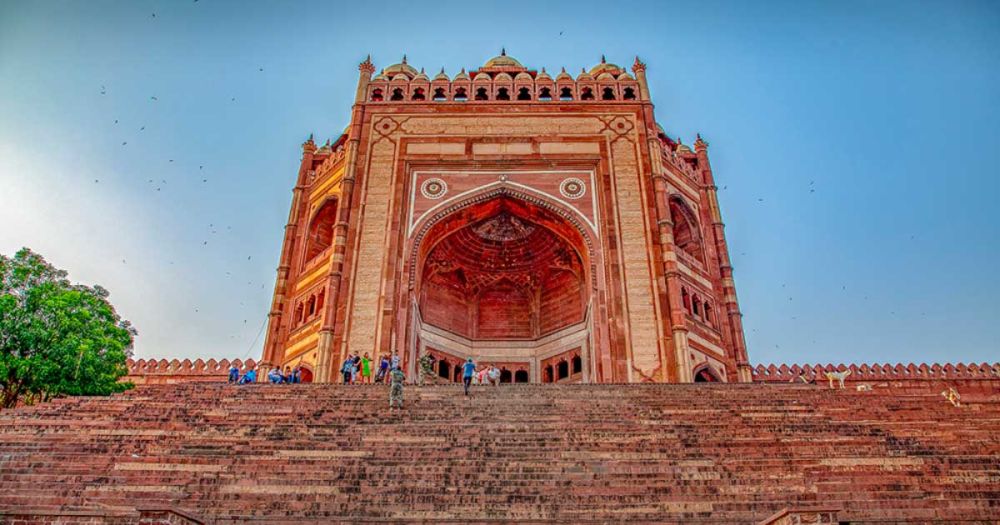

Founded in the 16th century by the great Mughal emperor Akbar, Fatehpur Sikri is a city predominantly made of red sandstone and has been a hotspot for historical tourism in India. The city served as Akbar's capital for approximately 14 years before being abandoned due to the scarcity of water. Fatehpur Sikri stands as a stunning example of Mughal architecture combined with Hindu and Jain decorative art.
Tourism in Fatehpur Sikri can be traced back to the colonial times when the British Raj often visited this architectural marvel, seeing its potential as a historical site. It was around this time that the site began to be preserved and documented.
In 1986, UNESCO designated Fatehpur Sikri as a World Heritage site, significantly boosting its visibility and tourism potential. Since then, it has been a staple on the itinerary of tourists visiting the golden triangle of Delhi, Agra, and Jaipur.
The blend of architectural heritages such as Buland Darwaza, Panch Mahal, and Salim Chishti’s Tomb continues to draw the attention of tourists from all over the world. Visitors are captivated by the story of Akbar and his court, the legends of his nine jewels or Navaratnas, and the grandeur of the palaces and public buildings that speak volumes of the prosperity and vision of the Mughal era.
In recent years, tourism trends in Fatehpur Sikri have embraced a more interactive and engaging approach to enhance the visitor experience. The introduction of evening light and sound shows narrating the history of Akbar and the city has become one of the latest attractions.
The Archaeological Survey of India, the body responsible for the maintenance of historical sites, has also started providing audio guides in various languages that explain the history and anecdotes associated with the various structures within Fatehpur Sikri, which has been well-received by both domestic and international tourists.
Leveraging technology, virtual tours and augmented reality experiences have started to appear, which is a boon during times when travel is restricted, such as during the COVID-19 pandemic.
Sustainable tourism is another trend that is being increasingly emphasized. Efforts are being made to preserve this historical site for future generations while ensuring that the influx of tourists does not negatively impact the monument.
Additionally, there has been a growing trend of incorporating local experiences and cultural tourism into visits to Fatehpur Sikri. Tourists are eager to explore the local crafts, cuisine, and cultural practices, taking back with them a piece of the local heritage alongside memories of the majestic Mughal architecture.